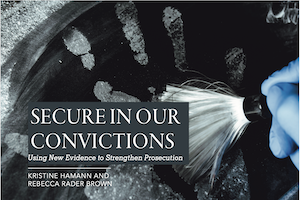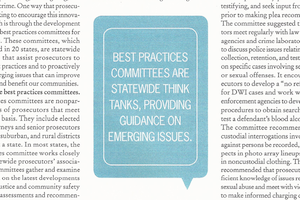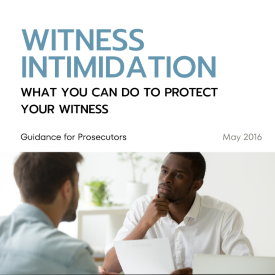Secure in our Convictions: Using New Evidence to Strengthen Prosecution

Author(s): Kristine Hamann, Rebecca Rader Brown
In May 2013, a Colorado man fails to show up to work. Concerned, the man’s boss visits his house, where the man’s roommate refuses to let the boss enter. The boss contacts the police, who launch a missing person investigation. Using cell tower technology, police are able to approximate the missing man’s location in the hours leading up to his disappearance.
Read More



